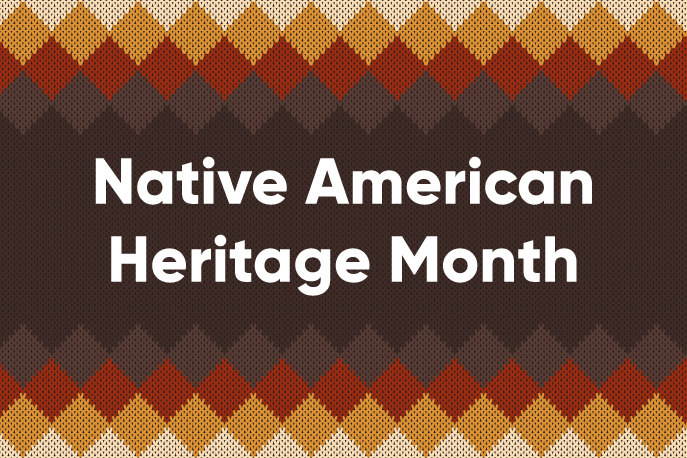Hello readers – Native American Heritage Month is a time to honor and celebrate America’s Indigenous peoples and their indelible contributions to American society throughout history while also recognizing the injustices they continue to face.
Indigenous peoples have populated the Americas since pre-historic times – as early as 24,000 years ago, according to some estimates. To put that in context, it’s only been about 500 years since Europeans began widely exploring the continent. In that time, Indigenous peoples have faced a long history of systemic subjugation and injustices aimed at assimilating and displacing Native people and eradicating Indigenous cultures.
We continue to see the legacy of that oppression today. For example, recent news stories have shed light on the number of Indigenous children who died and were buried in unmarked graves after being forced into boarding schools. We also see this shameful legacy in the high rates of sexual harassment, misconduct and abuse facing Indigenous peoples.
Here are the facts:
• According to a Department of Justice study, 84% of Native American and Alaska Native women have experienced violence – of the 56% who have experienced sexual violence, 90% experienced it at the hands of a non-tribal member.
• According to the 2019 documentary “A Broken Trust,” insufficient collaboration between the federal and tribal criminal justice systems means that many perpetrators experience little to no consequence.
• Tribal police have historically had limited authority to detain non-native perpetrators. Though the latest iteration of the Violence Against Women Act includes a provision granting some tribal jurisdiction over non-native domestic and sexual abusers, the bill has stalled in the Senate.
As Tribal Nations continue to face the impact of these systemic injustices, they require the culturally appropriate support and necessary resources to best prevent and respond to sexual harassment, misconduct and abuse in their communities.
Here at RALIANCE, we’ve been proud to uplift the work of organizations supporting Indigenous peoples and survivors, including Tewa Women United – which initiated a project to help coaches and educators understand the connection between male socialization and sexual violence – and the Minnesota Indian Women’s Resource Center, which launched a project aimed at supporting Indigenous survivors of sexual violence, with an emphasis on culturally appropriate prevention services and a focus on historical trauma facing the Indigenous community. Both organizations are recipients of RALIANCE’s impact grants, which – in partnership with the National Football League – fund and advance projects that contribute to sexual violence prevention.
It is crucial to continue supporting Indigenous communities through grassroots efforts that prevent and respond to violence – while advocating for policy changes that enable Indigenous peoples to manage abuse in their communities. In taking this step, our country helps build a better future for Indigenous peoples.
RALIANCE provides consulting, assessment, and employee development services to help build more equitable workplace cultures and create environments free from sexual harassment, misconduct and abuse. We stand ready to support your organization’s goals – contact us today at info@raliance.org to get started.

